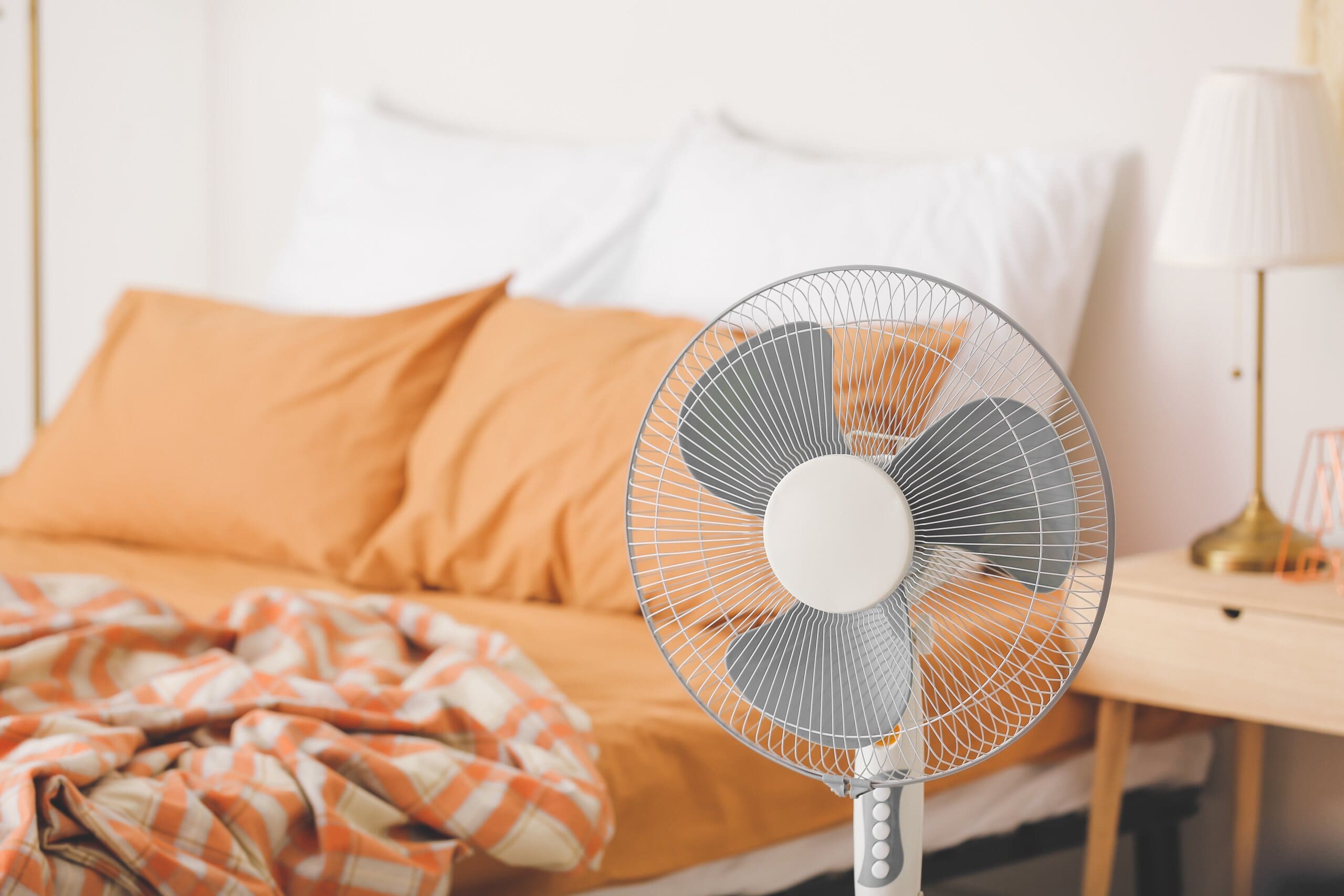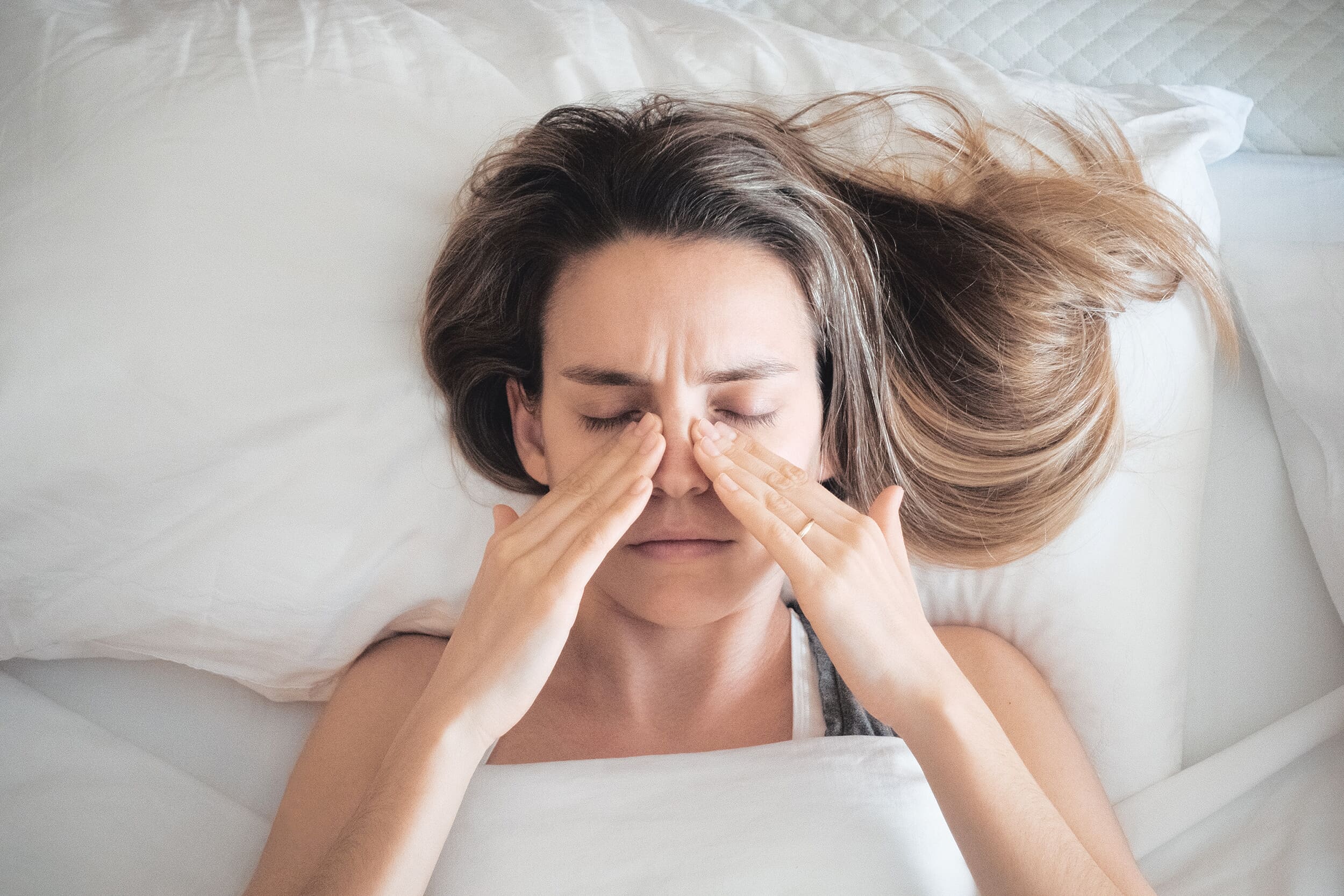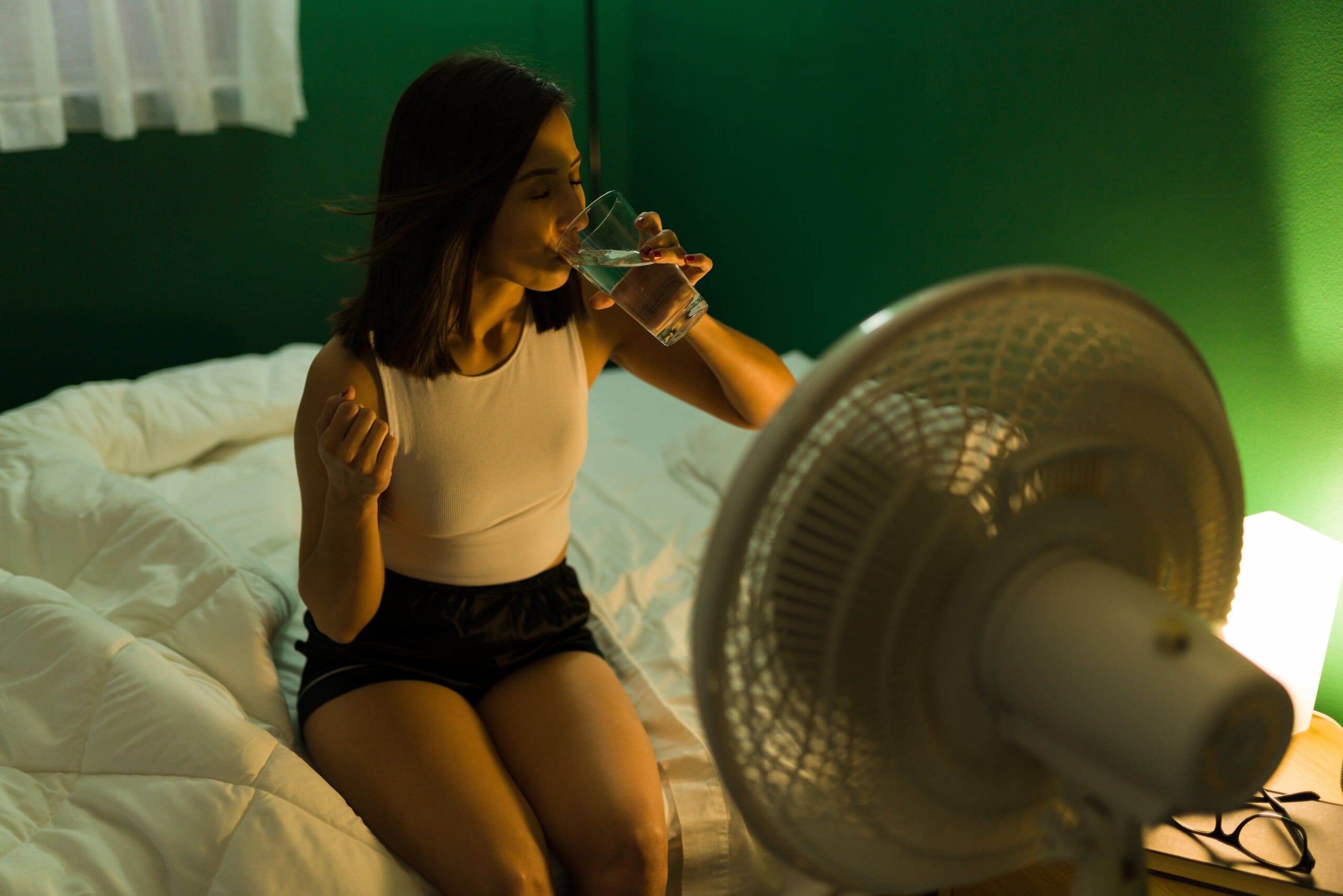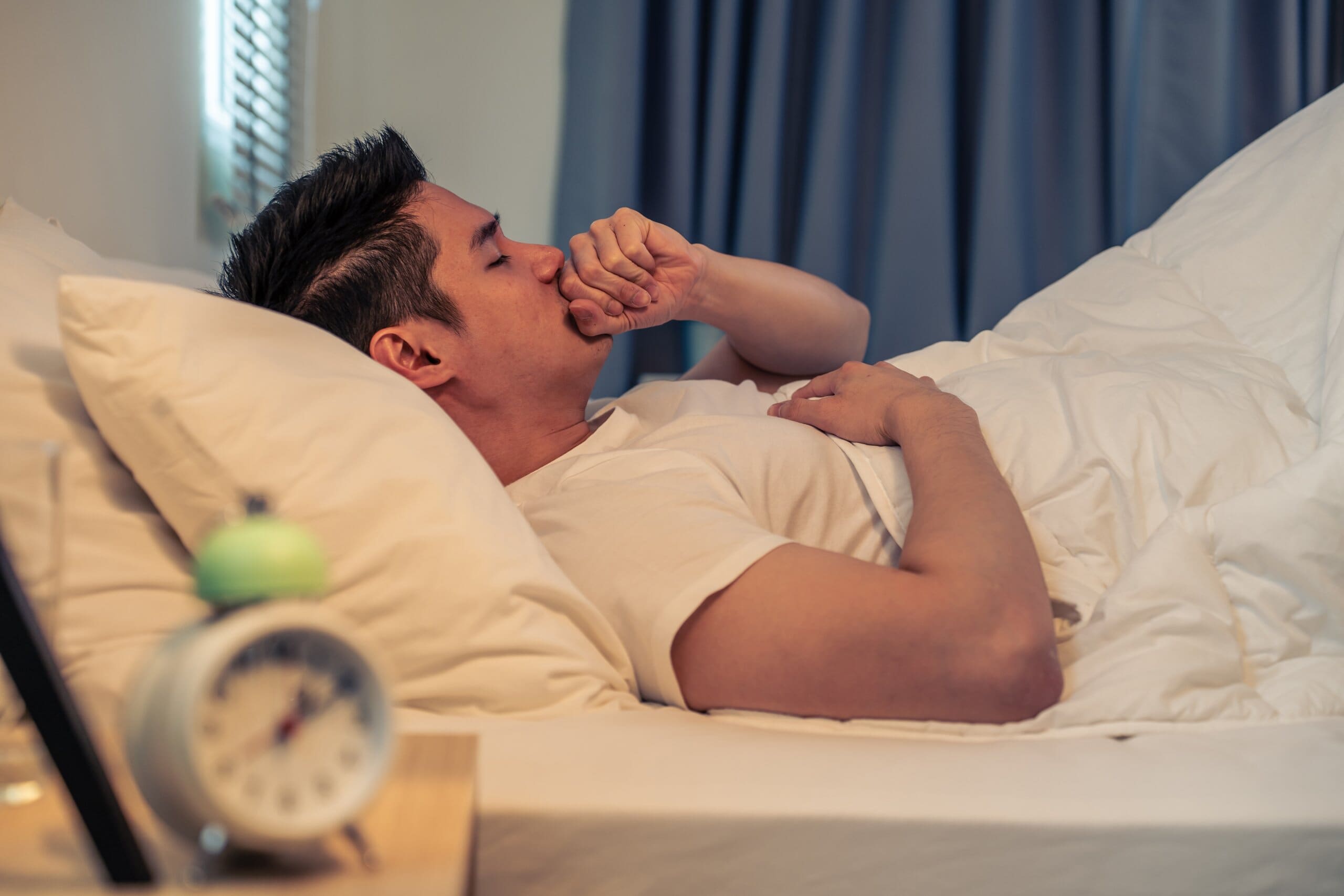An electric fan is a surprisingly cost-effective way of quickly cooling down at night, even when you let the fan run all night, but that doesn't necessarily mean it's the best way. In fact, it can be bad for you.
More often than not, we switch on our fans at night because the noise sends us to sleep - check out our post on coloured noises for sleep to learn more - while the coolness is a nice side-effect. In fact, 'fan on while sleeping' has over 20 million views on TikTok, with creators making videos about how they simply can't sleep without the noise of a fan.
Cold room + snuggly warm bed = pure bliss. However, our Sleep Experts - including Martin Seeley, our CEO and Senior Sleep Expert - warns that there are some side-effects to your health by leaving your fan running all night...

1. It can trigger allergens and asthma
Naturally, when an electric fan is on it circulates the air around the room, however, what many people aren’t aware of is that it also circulates dust mites, spores, pollen, and other allergens.
Lots of allergens, including dust mites, peak during summer, as they thrive in humid temperatures. If you suffer from seasonal allergies such as hayfever, you'll know that summer is the worst time for high pollen counts and your allergies being triggered. What you might not realise, however, is that your electric fan circulates these allergens around your room.
So, if you find that you’re suffering from excessive sneezing, watery eyes, a runny nose, itchy throats and even breathing difficulties, make sure that there is no dust on the blades of your electric fan.
If you have the budget, it is worth upgrading to a better fan, such as a tower fan, that can purify the air by reducing the pollen particles and dust mites throughout the room. However, if this isn’t possible, regularly deep cleaning your bedroom will help alleviate your allergies.
If you often suffer from not being able to sleep due to your allergies, our post on sleeping better with seasonal allergies will give you lots of helpful tips.

2. It can make you congested
If you’ve ever had an electric fan on all day, you’ll be aware of how dry the air feels due to the excess wind. Naturally over time this can dry out your nose and throat, which results in your body needing to produce more mucus to stay hydrated.
However, this can create many side effects, including a headache, stuffy nose and even a sinus headache. To stop this from happening, you should ensure that you drink at least two litres of water throughout the day.
If you find yourself suffering from these congestion symptoms, you should make sure to drink at least two litres of water throughout the day to stop you from struggling to sleep with a blocked nose. Drinking extra water can help your body thin your mucus, which makes it easier to move properly through the body, rather than causing congestion and a blocked nose.
Drinking enough water is also recommended for those that have suffered from a poor night’s sleep due to the heat, as even mild dehydration can cause you to feel even more drowsy and tired.

3. It can give you dry eyes and cause irritation
Dry air can also cause dry eyes, which can lead to irritation. This is even more important for those that wear contact lenses due to them increasing your likelihood of dryness and irritations. You can, however, get around this if you purchase a rotating electric fan as it circulates the air more.
If you suffer from seasonal allergies, you won't want to irritate your eyes even more, so consider how your fan might be drying your eyes out.
4. It can cause coughing fits in the night
Similarly, this irritation can cause excess coughing. As we've mentioned, running a fan all night long dries out the air in your room. Breathing in this dry air can irritate your throat and lungs, causing you to wake up coughing throughout the night.
Breathing in the dust that's circulating your room because of the fan can also irritate your throat, so make sure you've had a spring clean before you crack the fan out. Our post on the most common bedroom areas people forget to clean will help you make sure your room is as dust-free as possible.
If you need to keep your fan running all night to stay cool, but don't want a disturbed night's sleep by having coughing fits every hour, a simple humidifier will help add moisture to the air, combating the moisture being evaporated by the fan.

5. It can cause a stiff neck or sore muscles
If you have any pre-existing muscle pains, perhaps from working out or from improper posture whilst working at a desk, you should refrain from directing the electric fan on this area throughout the night. This is because the concentrated cool air can make your muscles tense and cramp up, causing you even more pain.
You may even notice that you’ve gained a stiff neck since using an electric fan, so refrain from using it for a few nights to see if you spot a difference.
If you really need to run your fan all night, even at the expense of your neck, consider a pillow that helps relieve pressure from your neck and shoulders to try to combat this pain. The Coolflex® Hybrid ICE Pillow, for example, cradles your neck in soft memory foam to prevent stiffness, and also has a side of cooling gel pads that will keep you even cooler at night.
We know how uncomfortable hot nights can be, so sometimes running your electric fan all night seems like the only way to get to sleep. Luckily, our Sleep Experts have come up with 10 ways you can battle the heat at night, without a fan, so be sure to check that post out.




